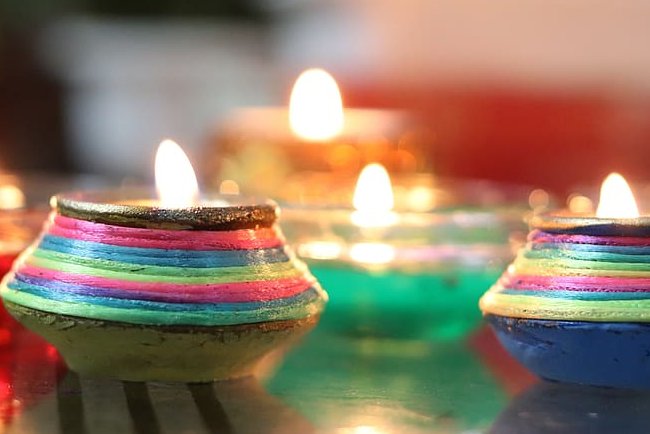
मी अविवेकाची काजळी । फेडूनी विवेकदीप उजळीं ।
तैं योगियां पाहे दिवाळी । निरंतर ॥ ५४ ॥
Sant Jnaneshwar (संत ज्ञानेश्वर) in his epochal commentary on Bhagavad Gita, "Jnaneshwari" (completed in 1290 AD), articulates the most profound essence of Diwali. #Diwali2021
1/3
तैं योगियां पाहे दिवाळी । निरंतर ॥ ५४ ॥
Sant Jnaneshwar (संत ज्ञानेश्वर) in his epochal commentary on Bhagavad Gita, "Jnaneshwari" (completed in 1290 AD), articulates the most profound essence of Diwali. #Diwali2021
1/3
The verse means:
(Written from the perspective of lord Shri Krishna)
"As I erase the gloom of ignorance and apathy, the light of knowledge burns bright within the conscience. Such an enlightened mind experiences immanent diwali"
2/3
(Written from the perspective of lord Shri Krishna)
"As I erase the gloom of ignorance and apathy, the light of knowledge burns bright within the conscience. Such an enlightened mind experiences immanent diwali"
2/3
We at @BhandarkarI wish everyone here a very happy Diwali, and that the light of knowledge shall illume each mind bright and forever.
Happy Diwali everyone.
Happy Diwali everyone.
• • •
Missing some Tweet in this thread? You can try to
force a refresh





